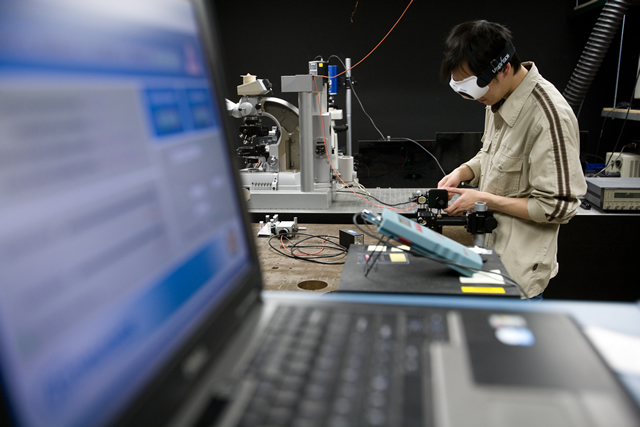
Computer Science ETDs
Publication Date
12-1-2015
Abstract
Many existing path planning methods do not adequately account for uncertainty. Without uncertainty these existing techniques work well, but in real world environments they struggle due to inaccurate sensor models, arbitrarily moving obstacles, and uncertain action consequences. For example, picking up and storing childrens toys is a simple task for humans. Yet, for a robotic household robot the task can be daunting. The room must be modeled with sensors, which may or may not detect all the strewn toys. The robot must be able to detect and avoid the child who may be moving the very toys that the robot is tasked with cleaning. Finally, if the robot missteps and places a foot on a toy, it must be able to compensate for the unexpected consequences of its actions. This example demonstrates that even simple human tasks are fraught with uncertainties that must be accounted for in robotic path planning algorithms. This work presents the first steps towards migrating sampling-based path planning methods to real world environments by addressing three different types of uncertainty: (1) model uncertainty, (2) spatio-temporal obstacle uncertainty (moving obstacles) and (3) action consequence uncertainty. Uncertainty is encoded directly into path planning through a data structure in order to successfully and efficiently identify safe robot paths in sensed environments with noise. This encoding produces comparable clearance paths to other planning methods which are a known for high clearance, but at an order of magnitude less computational cost. It also shows that formal control theory methods combined with path planning provides a technique that has a 95% collision-free navigation rate with 300 moving obstacles. Finally, it demonstrates that reinforcement learning can be combined with planning data structures to autonomously learn motion controls of a seven degree of freedom robot despite a low computational cost despite the number of dimensions.
Language
English
Keywords
Path Planning, Uncertainty, Stochastic Reachability, Reinforcement Learning, Modeling Error
Document Type
Dissertation
Degree Name
Computer Science
Level of Degree
Doctoral
Department Name
Department of Computer Science
First Committee Member (Chair)
Kapur, Deepak
Second Committee Member
Moses, Melanie
Third Committee Member
Oishi, Meeko
Recommended Citation
Malone, Nick D.. "High-Dimensional Motion Planning and Learning Under Uncertain Conditions." (2015). https://digitalrepository.unm.edu/cs_etds/23
